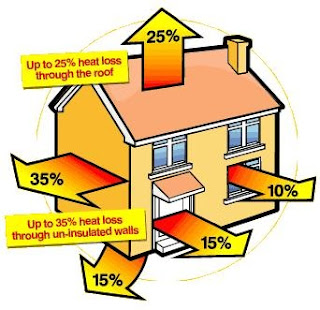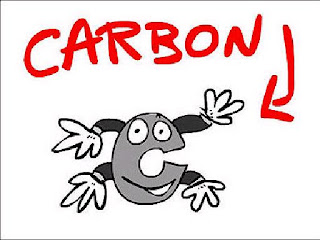 We really need to be redoubling our efforts to tackle climate change. Just look at the blog entry before this one, where Stern says the problem is far worse than he'd previously described in his highly influential report - and the entry before that on government giving the cold shoulder to action on climate. Many think of efforts to tackle climate change in terms of flying less, driving less, using renewable, low carbon energy sources, insulating our homes, recycling materials...but adjusting our diet is not so commonly mentioned.
We really need to be redoubling our efforts to tackle climate change. Just look at the blog entry before this one, where Stern says the problem is far worse than he'd previously described in his highly influential report - and the entry before that on government giving the cold shoulder to action on climate. Many think of efforts to tackle climate change in terms of flying less, driving less, using renewable, low carbon energy sources, insulating our homes, recycling materials...but adjusting our diet is not so commonly mentioned.Changing to a lower meat, higher fruit and veg diet can in fact be one of the most effective ways of lowering carbon emissions and tackling climate change, especially if beef consumption is reduced or eliminated. Consider the estimated total eco footprint of meat compared with fruit and vegetables: 6.9 to 14.6 hectare yrs per tonne for meat (calculated using average global yield and embodied energy data - the range is due to pasture-fed vs grain-fed animals); as against 0.3 to 0.6 hectare yrs per tonne for a range of fruits, roots and vegetables (calculated using average global yield for a range of veg, with an allowance for transport, processing and energy for farming).
These estimates from the book Sharing Nature's Interest by footprint experts Chambers, Simmons and Wackernagel (2000) show the the environmental impact of meat is 11 to 49 times higher than fruit and vegetables. This chimes with the basic science because the food chain for meat is obviously longer, with many vegetables and grains being grown for use as animal feed. [Meat impacts are 1.5 to 8.5 times higher than grains and pulses too.] Beef farming has a very high climate impact due to: rainforest clearance to create the farmland, perhaps by burning; grain feeding the animals; methane released by the cows metabolism, (and dont forget the long distance trade in frozen meat).
In short: crunch carrots more, eat meat less and you will contribute to cutting climate change! Whether the fruit and veg are chemically grown abroad, or locally and organically grown, they're going to have lower climate impact than any kind of meat. There are other benefits too as lower meat diets are cheaper and healthier. Carrots for instance - given that it was National Carrot Day on 3 Feb and that it will be International Carrot Day on 4 April - have the highest vitamin A content of all veg and are loaded with vitamin B6, vitamin C and potassium too. Find out more from this amazing, if somewhat bizarre site: http://www.carrotmuseum.co.uk/

















